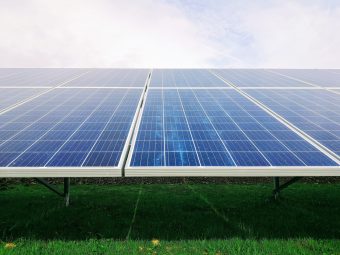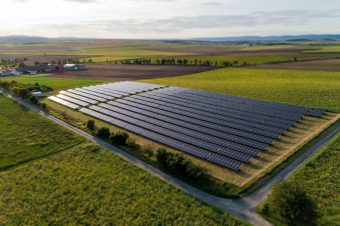
Mariana Proença)
Serbia has good predispositions for the use of solar energy, said Jovana Joksimović, Assistant Minister of Mining and Energy in charge of International Cooperation and European Integration, adding that the country’s task is to use this natural resource to ensure a secure supply of electricity, greater energy independence and reduce harmful emissions gases.
According to her, renewable energy sources will become the main domestic source of electricity in the years ahead, and the way to achieve this is through the most economical exploitation of the available potential in the case of wind and solar energy.
“Solar energy is part of the response to the strategic challenges facing the energy sector of both Serbia and other Western Balkan countries, as it represents a clean and accessible source of energy that contributes to reducing import dependence and the emission of harmful gases,” said Ms Joksimović during the panel discussion titled “The role and importance of solar energy on the road to carbon neutrality” in Banja Luka.
She pointed out that the activities on boosting the capacity of solar energy are taking place in several directions.
More:
- THE EUROPEAN SOLAR INDUSTRY FACING A CHALLENGE – PROPOSED EMERGENCY MEASURES TO PROTECT EU PRODUCERS
- AUSTRALIA’S SOLAR REVOLUTION STARTS ON ROOFTOPS
- TO ENERGY INDEPENDENCE WITH LUXEN SOLAR
“Auctions for market premiums, which were successfully implemented for the first time last year, included the quota for solar power plants, projects implemented by the Electric Power Industry of Serbia (EPS) and the projects implemented by the private sector. A good example of this is the construction of 1GW of self-balancing solar power plants, built by a consortium of companies headed by the South Korean company Hyundai Engineering, and which will be owned by EPS, i.e. the state, after completion,” she said, adding that a prosumer institute was also established that will help individuals to become active participants in the energy transition.

The Assistant Minister also pointed out that Serbia is in the process of adopting strategic documents that will determine the direction and dynamics of changes in the energy sector, which is undergoing energy transition.
As she pointed out, the Integrated National Plan for Energy and Climate until 2030, with projections until 2050, and the new Energy Development Strategy until 2040 with projections until 2050, which will be adopted in the following period, also contain clearly defined goals.
“The integrated plan is the first strategic document that looks at climate and energy issues uniquely. It took two and a half years to draft it, while major geopolitical changes that were most reflected in the energy sector were underway. By 2030, the main goals include increasing the share of RES in electricity production to 45 per cent, reducing the emission of harmful gases by 40.4 per cent compared to 1990, as well as achieving a significant increase in energy efficiency,” said Ms Joksimović.
Energy portal



